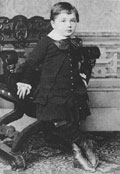
We can't solve problems using the same kind of thinking we used when we created them. We must learn to see anew.
Albert Einstein
WEEK 1: Getting Started With Your Mind-book - Journaling
Achievement
Targets:
1. Open a process of self-observation (the "spiritual" world
within) and observation of the world (the outside "real" world)
2. Gain an understanding of the potential benefits of self-knowledge,
imagination and creativity in our lives.
Delivery Strategy: Opening a process of self-observation is made possible by the use of a MIND-BOOK, a hands-on visualization tool through which-like a pair of glasses-visualize and record in paper the ONLINE DESIGN JOURNEY. The mind-book is presented as a collaborative tool for self-change, for participants to keep open through all the 5 weeks of the seminar, and use continuously to record their self- and world-views.
Sunday Report: Describe your mind-book. What does the mind-book mean for you? What kind of material/techniques did you use? In which ways do you think its use could be beneficial?
WEEK 2: Finding Your Voice - Story-telling
Achievement
Targets:
1) Explore the domain of the familiar
2) Visualize one's thinking and feeling process
Delivery
Strategy:
1. Gather relevant visual and written information about oneself (family
stories, family pictures, other images, poems ETC.) and copy/paste it
in the mind-book
2. Answer at least 3 strategic questions in the mind-book
3. Turn in Sunday Report
Sunday Report: Which story/ies did you write down in your mind-book about who you are, and how you would like to be? Did you share your story/ies? With whom? What feedback/insights did you get?
WEEK 3: Finding Common Ground With Others - Dialogue
Achievement
Targets:
1) Explore the domain of the friendly
2) Gather relevant information about aspects of the world the participant
is interested in.
3) Open dialogue about one's process of self-discovery/growth/change with
others.
Delivery
Strategy:
1. Engage in online/face-to-face dialogues, and reflect them in the mind-book
2. Answer at least 3 strategic questions in the mind-book
3. Turn in Sunday Report
4. Share the mind-book with a family member, a friend, and a co-worker.
Sunday Report: In which meaningful dialogues did you engage this week? How did you reflect them in the mind-book? Did you share your mind-book? With whom? What feedback/insights did you get?
WEEK 4: Making a Difference in the World - Collaboration
Achievement
Targets:
1) Explore the domain of the unknown
2) Identify areas of one's life/the world where the participant would
like to make a difference
3) Think of concrete new actions/alternatives to introduce change in one's
life
Delivery
Strategy:
1. Choose at least 2 areas/activities where one could do something new
about, and reflect those ideas/actions in the mind-book.
2. Answer at least 3 in the mind-book
3. Turn in Sunday Report
Sunday Report: Which activities in the direction of your desired outcomes did you do this week? How did you reflect them in the mind-book? What feedback/insights did you get?
WEEK 5: Self-Evaluation
Achievement
Targets:
1. Reflect on one's experience
2. Achieve an appreciation of having a voice
Delivery
Strategy:
1. Write a list of 10 positive things learned in the course
2. Answer at least 3 in the mind-book
3. Turn in Sunday Report
Sunday Report: What have you learned in this activity: from you, from others' worldviews, from images of how you would like to be as people compare to how you currently are? In which ways was the mind-book useful? Are you planning to keep on using it?